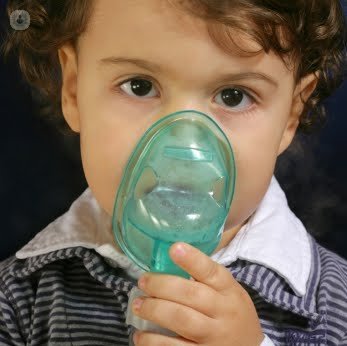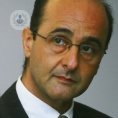Asthma attacks: Symptoms and Treatment
Written by:Asthma is the most common chronic disease in childhood due primarily to changes in our living conditions and family environment. An asthma attack is an episode of breathing difficulty with cough, wheezing (wheezing or whistling in the chest), fatigue and chest tightness. The cause is a decrease in airflow obstruction and bronchial inflammation. Asthma attacks cause great physical and emotional impact on the patient and family.
The establishment of an asthma attack can be fast or slow.
- The fast is characterized by a predominance of bronchoconstriction, increased initial gravity and faster response and favorable treatment. It is caused by airborne allergens, allergens and food additives, drugs, air pollution, exercise, stress, cold or moisture.
- Slow is characterized by a predominance of inflammation, a poorer response to treatment and be caused by respiratory viral infections or suffering a poorly controlled asthma or inadequately treated.
- Children with asthma who live with smokers have more often asthma crisis, are more serious, more difficult to control and require more medication.
Symptoms and types of bronchial asthma
 To assess the severity of an asthma attack is necessary to examine the state of consciousness, dyspnea and retractions, respiratory auscultation, breathing and heart rate and oxygen saturation.
To assess the severity of an asthma attack is necessary to examine the state of consciousness, dyspnea and retractions, respiratory auscultation, breathing and heart rate and oxygen saturation.
- For example, in a slight crisis child has a normal consciousness, talk to normal sentences, short of breath when walking but no retractions. On auscultation moderate wheezing are heard, respiratory rate is less than 20 to 30 breaths per minute (depending on age), heart rate below 100 beats per minute, at all ages, and oxygen saturation is equal to or greater than 95%.
- However, in a serious crisis your child is agitated, drowsiness or confusion, halting speech, difficulty eating, dyspnea at rest and intense circulation. On auscultation wheezing they heard intense, breathing rate is greater than 25 to 50 breaths per minute and heart exceeds 120-130 beats per minute, depending on age and oxygen saturation is less than 92%.
- Risk factors for developing a crisis of fatal asthma are: prior history of admission to intensive care unit, two or more income in the last year, numerous consultations at the Emergency Services in the previous year, cardiovascular disease, abuse bronchodilator drugs, sudden onset of the crisis and lack of regular checks of their disease.
Treatment of an asthma attack
The treatment of an asthma attack mainly based on the administration of bronchodilators and systemic corticosteroids. the early use of oxygen saturation is recommended when less than 94% and fatal asthma.
- Bronchodilators for the administration route of choice is inhaled by its greater effectiveness, speed of action and fewer side effects. The system MDI with spacer is as effective, even more, nebulizers and it is advisable for all ages. Nebulizer system must be booked when oxygen is required in severe crises. The doses depend on the severity of the crisis and the response to the initial dose.
- Systemic corticosteroids are administered orally. His early use during the first hour of crisis, reduces hospitalization. They occur in runs of between 3 - 5 days and can be interrupted without gradual dose reduction. Its use leads to fewer relapses, fewer visits and less use of bronchodilators. They are particularly suitable for moderate and severe crisis, in mild attacks requiring bronchodilators within 3 to 4 hours and fatal asthma.
- After the resolution of the crisis, the pediatrician should assess asthma treatment prescribed maintenance schedule periodic controls, monitor adherence to treatment and inhalation technique, study the triggers and implement an action plan based on symptoms and intervention educational.


